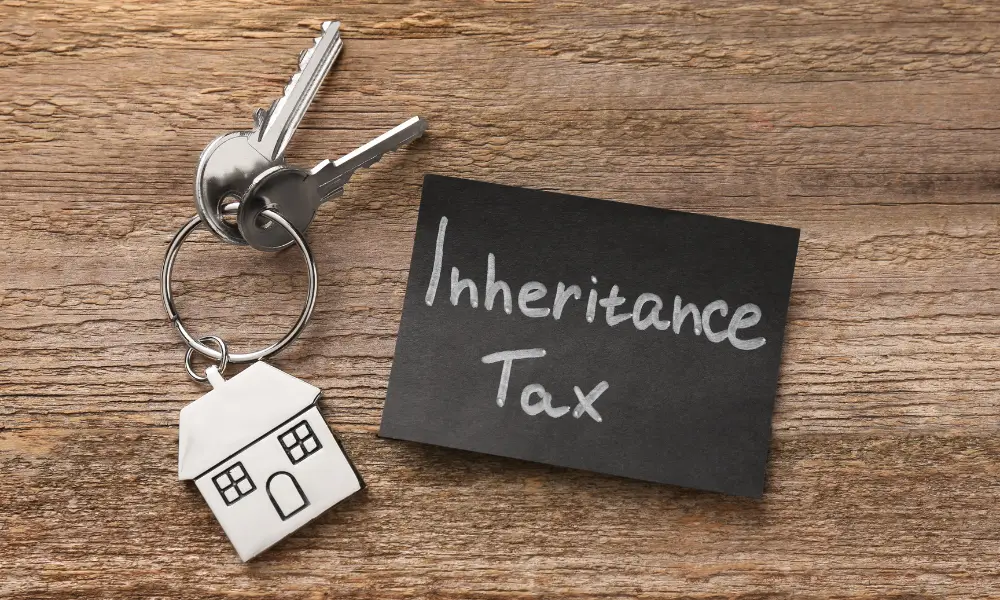Written by Gareth Simon
Ward Goodman
May 22, 2025
Big changes are coming to inheritance tax (IHT) – and if you’re a business owner, landowner, or have a sizeable pension pot, you need to be thinking ahead. Two major changes to inheritance tax rules are on the horizon – one scheduled for April 2026, the other for April 2027. Both are likely to reshape how estates are taxed, with potentially major implications for families, business owners, and landowners.
Here’s what’s changing, who it will affect, and what steps you can take today to stay ahead.
What’s Changing?
1. Business Property Relief (BPR) and Agricultural Property Relief (APR)
From April 2026, the government plans to tighten the rules around BPR and APR – two reliefs that have traditionally played a crucial role in passing on farms and businesses without triggering a hefty tax bill.
Under the proposed changes:
- The first £1m of combined agricultural and business property will continue to receive 100% relief, with 50% relief on amounts over £1m
- AIM-listed shares will be affected — from April 2026, they will qualify for only 50% Business Property Relief, regardless of value, and will not benefit from the new £1 million 100% relief allowance.
This change marks a real turning point. Until now, many family businesses and agricultural estates have managed to stay out of the IHT net altogether. But with reliefs being capped, more of these estates will now face sizeable tax bills.
An Example: Take a couple with a business valued at £1.8 million. Under current rules, Business Property Relief could potentially cover the full amount. But once the cap kicks in, only the first £1 million would qualify for 100% relief. The remaining £800,000 would be eligible for only 50% relief – meaning £400,000 would be subject to inheritance tax. At the standard 40% rate, that results in a £160,000 tax bill that wouldn’t have existed under the current system.
2. Pensions to Be Included in IHT (from April 2027)
Pensions have traditionally been a very tax-efficient way to pass on wealth. Currently, most pension pots fall outside of a person’s estate for IHT purposes.
That’s expected to change. From April 2027, subject to final confirmation and legislation:
- Unused pension pots will be included in the taxable estate.
- The nil-rate band, which is currently set at £325,000, will be applied across both pensions and other assets, reducing the overall tax-free allowance available elsewhere.
- There’s also the potential for double taxation – with pensions being hit by both IHT and income tax on withdrawal.
Add to that the probate complications, as executors will need to coordinate with pension providers and potentially settle tax liabilities before beneficiaries can access funds.
Who Will Be Affected?
These changes will hit:
- Business owners who assumed their enterprise could be passed on tax-free.
- Farmers and landowners with agricultural property that previously qualified for 100% relief.
- Wealthy individuals with large pensions, especially those in drawdown or with unused pension pots intended for inheritance – particularly where values exceed the current nil-rate band of £325,000.
It’s not just the ultra-wealthy who need to pay attention. Plenty of families will find that previously exempt estates now face a substantial IHT bill unless they act soon.
What You Should Do Now
1. Review Your Estate Plan
Work with a financial planner such as Ward Goodman to assess how these changes could affect your estate. If you’re relying on BPR or APR, look at the current value of your assets and how much relief might still be available post-2026.
2. Use the Current Rules While You Can
We’re in a window where the existing legislation still applies. That makes now the ideal time to act. If you’re considering gifting business or agricultural property, or reorganising your affairs, doing so before the changes come into effect could protect more of your wealth.
3. Consider Trusts
Trusts can help manage how assets are passed down and provide flexibility when navigating changing tax rules. While they’re not a one-size-fits-all solution – and come with their own rules – they remain a valuable planning tool, especially in light of reduced reliefs.
4. Reassess Your Pension Strategy
If your pension forms part of your estate plan, now is the time to revisit it. Consider:
- Reviewing your nomination forms to make sure they’re up to date.
- Looking at how your pension is invested and whether any drawdown strategies need adjusting.
- Seeking advice on whether life insurance or other protections might be needed to cover future IHT.
5. Start Planning Early
The worst position to be in is reacting at the last minute. By planning ahead, you have more options and more control. Leaving it until after April 2026 or 2027 could limit your choices and increase your tax exposure.
Consideration also needs to be given to how any IHT will be funded and the cash flow impacts this may have on a business. With the right planning, a managed succession strategy can significantly mitigate the risks arising from the new BPR regime.
Final Thoughts
The proposed changes to IHT are far-reaching and will affect more families than many realise. But with the right planning, you can still take control and protect your legacy.
At Ward Goodman, we help individuals and families plan ahead with clear, practical advice. Whether you’re a business owner, a farmer, or someone with a significant pension pot, we’ll help you navigate these upcoming reforms and develop a plan that works for your circumstances.
Now is the time to act – before the rules change.







